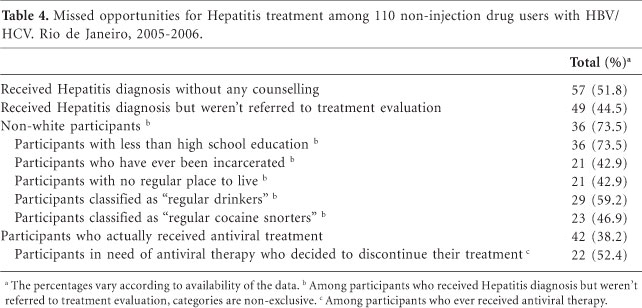Drug users (DU) are a marginalized group and at risk for viral hepatitis, who seldom access health services. A cross-sectional survey was conducted with 111 DU with chronic HBV/HCV and 15 in-depth interviews with health professionals/policymakers in Rio de Janeiro, Brazil. Most interviewees were male, non-white, with a low educational background, unemployed and/or living on less than $245 a month (minimun wage). In the last 6 months, 61.8% of interviewees snorted cocaine, 64.7% at least once a week. Half of the interviewees had a stable partner and 38.3% of those with occasional partners never/almost never using condoms. Addiction treatment seeking was found to be associated with: being white (OR:5.5), high-school degree (OR:8.7), and employment (OR:5.7). Hepatitis treatment seeking was high (80.9%), and access to low-threshold, user-friendly health services was key for treatment seeking behaviors (OR:3.6). Missed opportunities for hepatitis treatment seem to be associated with structural (uneven political/financial support to hepatitis programs) and patient-related barriers (severe addiction and non-adherence). Those most in need were less likely to access treatment, calling for renewed strategies, in order to curb hepatitis among impoverished drug users and their sexual partners.
Hepatitis; Drug use; Access; Adherence; Brazil




